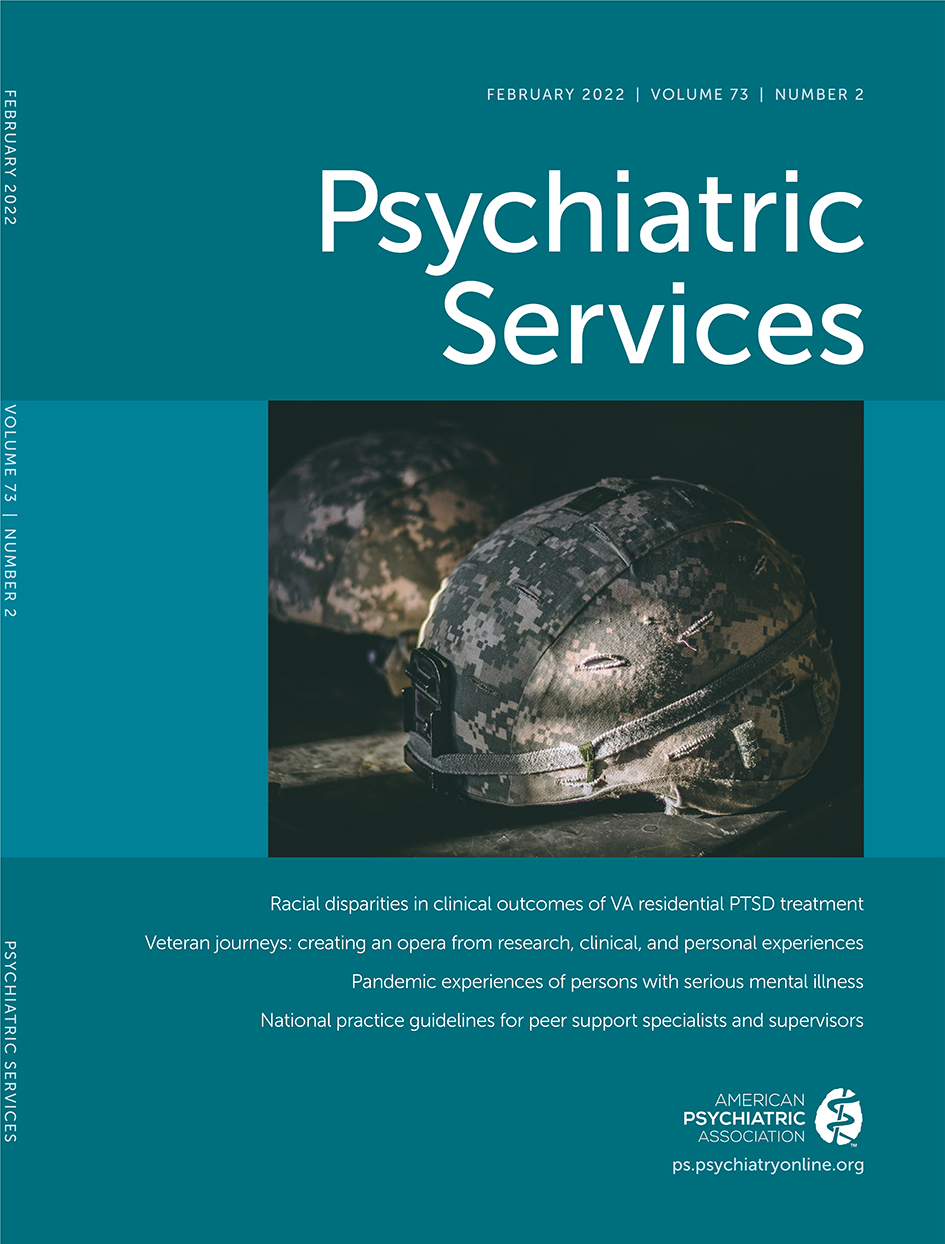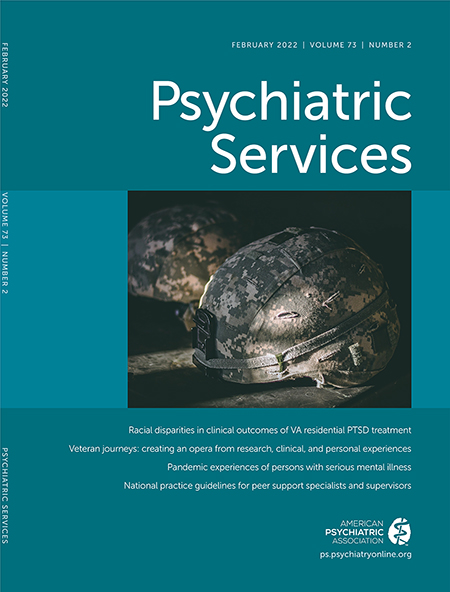In this issue, Dana Foglesong and colleagues (
1) headline
Psychiatric Services’ new Lived Experience Inclusion and Leadership column. To the best of my knowledge, their column is also the first peer-reviewed publication on peer support in the journal, led and coauthored in its entirety by lived experience leaders within the peer support movement, most of whom have also worked as peer specialists. Although lived experience–led research is not the exclusive remit of the Lived Experience column, this is the sort of work we (the column editors) are most excited to see. It is scholarship that represents a tangible democratization of knowledge production that contributes to rebalancing epistemic disparities stemming from historical failures to fully and equitably include those whom psychiatric services are designed to serve.
Foglesong and colleagues’ column (and the peer supporter supervision guidelines they describe) also come at a critical, and potentially pivotal, moment for peer support. In part due to the provider workforce shortages that the COVID-19 pandemic has engendered, a significant projected increase in mental health–related needs, and pandemic-related expansion of digital and telehealth platforms, the peer specialist position has increasingly been framed as a go-to solution. With this growing interest and, in at least some cases, uptick in available funding comes the risk of “cooptation”: a taking over or appropriation for a different and, in the case of peer support, generally less political, less edgy, and less social justice–oriented purpose than was originally envisioned and intended. These risks play out across peer support roles, in the supervision of the peer support workforce, and in research and writing about peer support.
At least once a week, someone forwards me the latest “digital peer support” startup or virtual training program. Such programs rarely offer more than “clinicians lite,” typically failing to call for transformative (political) change or to frame peer supporters as agents of such change. Most peer specialists are paid at or close to minimum wage, and concerns about lack of opportunities for career development and advancement and stigma within the provider workplace appear to be widespread. On the research front, first or senior authors who publish in peer-reviewed journals often lead projects about the peer support workforce but rarely have direct experience as peer supporters and often fail to conceptualize what peer support even is or why it matters.
In stark contrast, in the exhilarating early days of the contemporary U.S. (ex)patient movement, organizers’ goals were explicitly and normatively transformative: building a strong collective identity, raising awareness of the processes by which the perspectives of patients and service users end up marginalized, and either fundamentally changing the system or developing real alternatives. “Survivor knowledge,” as veteran activist Darby Penny repeatedly reminded us, was always understood to be the lifeblood of this work.
There is thus real reason for concern. But also, as the Foglesong et al. column actualizes and recent editorial initiatives at Psychiatric Services further support, there is real hope and substantive potential for a very different future. In this future world, those on the receiving end of services, lived experience leaders, and the collective movements that have sustained a multidecade push for experientially grounded change will no longer be marginal players in psychiatric research and research-informed policy, but valued collaborators and leaders.

